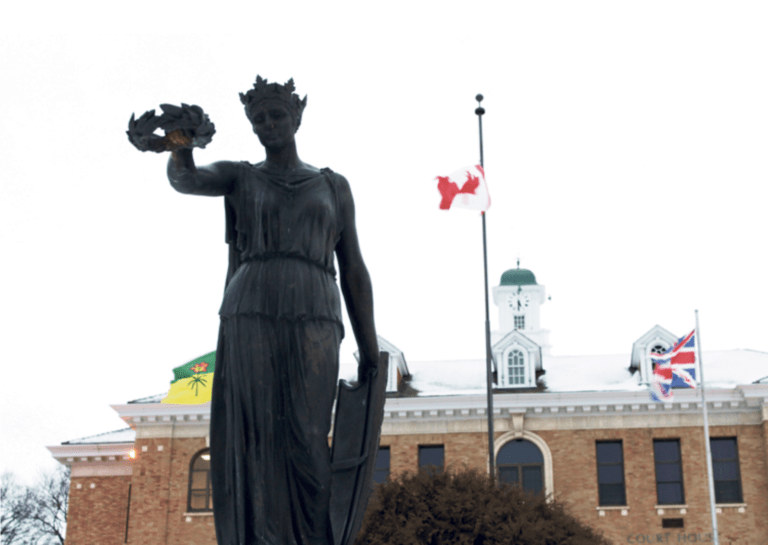
The Saskatchewan Court of Queen’s Bench is cancelling most COVID-19 restrictions. Effective on Tuesday a new directive updates and replaces all previous directives respecting the general operations of the Court of Queen’s Bench during the COVID-19 pandemic.
Queen’s Bench will return to pre-pandemic operations, with several specific exceptions, including off-site jury trials and child protection matters. Court of Queen’s Bench Chief Justice Martel D. Popescul said in a written statement that a return to normal operations for most areas of the court is expected — with “ongoing monitoring of local circumstances.”
“The Court continues to be mindful of its obligation to continue to hear and process matters that come before the Court, while simultaneously respecting the need to adhere to recommendations and protocols designed to keep everyone safe,” Popescul wrote.
“The Court continues to monitor the circumstances and recognizes that as the situation evolves further changes may be required. For the most part, and subject only to the modifications contained in this Directive, the Court will revert to its pre-COVID-19 practices and procedures.”
All courthouses remain open to the public — who will have to respect protocols decided for each specific case. Lawyers, parties and members of the public may be required to wear masks.
The presiding judge will determine the requirements regarding the wearing of masks within the courtroom. The Ministry of Justice court services division will determine the requirements respecting wearing masks within the courthouse — not including the courtroom.
“Everyone attending the courthouse must take responsibility for their health and safety, and the health and safety of others with whom they may have contact,” Popescul wrote.
“This means that all attendees must inform themselves and obey the recommended and mandatory Public Health Rules and Orders, including rules respecting hygiene and physical distancing.”
Popescul said that using judicial resources efficiently is still a priority. Counsel and parties are encouraged to take advantage of the expedited pre-trial processes, notify the local registrar as soon as possible when a scheduled conference, hearing or trial date is no longer needed and to collaborate with opposing counsel to reduce trial time.
Chambers proceedings and pre-trial conferences will be presumptively in person. Those that wish to appear remotely should contact the local registrar, in advance, and seek leave from the presiding judge to appear remotely.
Although court appearances will revert presumptively to in-person hearings — except for child protection matters — counsel and litigants are encouraged to continue to make use of technology where appropriate, Popescul wrote.
“Lessons learned over the past 18 months can continue to benefit the Court, counsel and the parties”
He said the Court is amenable to the use of technology in court proceedings provided its use does not jeopardize the integrity of the proceeding. It is the responsibility of the person choosing to appear by telephone to ensure they have a reliable and secure telephone line.
Until further notice, child protection chamber matters will continue to proceed by telephone
Notwithstanding this directive, any participant is entitled to appear in person during a child protection chamber matter in the hearing room at the judicial centre should they wish to.
Appearance day applications will continue to be heard by telephone.
Jury trials will also continue to be held at a location other than a courthouse “to ensure sufficient space in maintaining appropriate physical distancing for those participating in the trial process,” including for those who respond to a jury summons and those chosen for jury duty.
As the circumstances of the operational challenges posed by COVID-19 change, the terms of this directive may be amended. You can check the “covid message” tab at the court’s web page for amendments.
